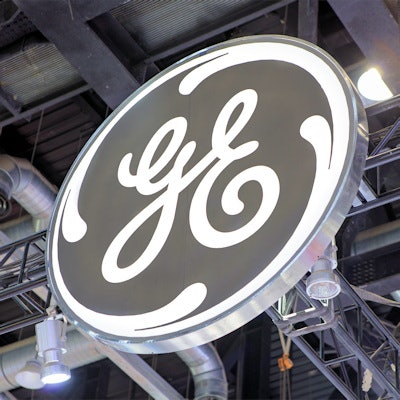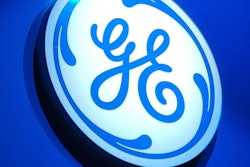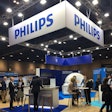
Industrial conglomerate GE said on 9 November that it plans to split into three separate companies. The move will result in GE Healthcare becoming an independent company, separate from GE's aviation and energy businesses.
GE said that GE Healthcare would be spun off into an independent, publicly traded business in early 2023 that would be a pure-play healthcare company. The second business would consist of GE's renewable energy, power, and GE Digital businesses, which would be combined and spun off into a single company in early 2024. Following the spinoffs, the remaining GE business would be focused solely on its activities in the aviation industry.
The news is a stunning move for a company that once defined the concept of the diversified industrial conglomerate. In the 1980s under legendary CEO Jack Welch, GE grew into a massive operation with activities ranging from consumer appliances to the NBC broadcasting network and including operations like healthcare, aviation, transportation, and power generation.
But over time, such broad diversification fell out of favor as being unwieldy and unfocused. Indeed, GE's activities in finance and insurance soon landed the company in trouble in 2017, when it was accused of not adequately disclosing problems in its power and long-term care businesses. The disclosures led to a cash-flow crunch that prompted GE to sell off businesses that were deemed outside the company's core mission.
Ironically, a plan floated in 2018 by then-CEO John Flannery proposed to spin GE Healthcare off into a separate company. But Flannery was later fired as CEO and replaced by Lawrence Culp, a longtime healthcare executive who shelved the spinoff plan and reinforced that healthcare was one of GE's core businesses. GE in 2020 was ordered by the U.S. Securities and Exchange Commission to pay a $200 million (173 million euro) penalty to settle the accounting issues.
GE has a long and storied history in healthcare. The company's roots go all the way back to the 19th century, when inventors C.F. Samms and J.B. Wantz founded the Victor Electric Company in Chicago in 1893. They started making x-ray systems one year after Wilhelm Röntgen's discovery of x-rays in 1895.
Victor Electric was acquired by GE, a manufacturer of x-ray tubes, in 1920. A series of acquisitions and mergers then followed over the next 25 years, and after World War II, GE moved its headquarters and manufacturing to the Milwaukee area.
Additional corporate milestones occurred in 1985 when GE bought Technicare from Johnson & Johnson, acquiring Technicare's large installed base of CT scanners; it bought ultrasound developer Diasonics Vingmed in 1998 and CT manufacturer Imatron in 2001. A major acquisition occurred in 2003 with a $9.5 billion (9.2 billion euro) purchase of U.K. life sciences and contrast media company Amersham, a move that brought GE into the pharmaceutical business.
GE Healthcare has accomplished a number of medical imaging product milestones over the years. The company was one of the first manufacturers of CT scanners, installing its first system in 1976. In the early 1980s, it launched its Signa line of MRI scanners, which has become one of the best-known product brands in radiology.
In discussing the spinoffs, GE stated that the newly independent businesses will be "better positioned to deliver long-term growth and create value for customers, investors, and employees." They will benefit from a "deeper operational focus," boards of directors that have expertise in the industries the firms operate in, and "distinct and compelling investment profiles."
GE said it would retain a 19.9% stake in GE Healthcare. The healthcare company will be led by Peter Arduini as president and CEO; Arduini is a longtime healthcare executive who was named to succeed Kieran Murphy as the head of GE Healthcare starting in January 2022.
Indeed, a similar rationale was expressed by GE archrival Siemens, which in 2018 spun off its healthcare unit into Siemens Healthineers with an initial public offering. Siemens cited a need for more flexibility and better focus on healthcare as among the reasons for the spinoff.
Like Siemens Healthineers, as a standalone company, GE Healthcare will still be a sizable operation. In its most recent financial results, the healthcare business reported revenues of $4.34 billion (3.74 billion euros) and segment profit of $700 million (603 million euros).



















